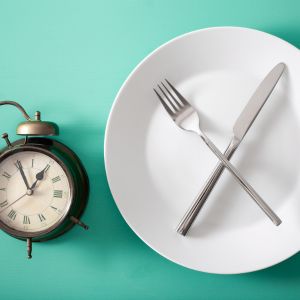Intermittent Fasting Lifestyle Not A Diet
Intermittent fasting is not a diet, it’s a lifestyle!
Intermittent fasting is a simple and economical way of reducing weight.
But it is not easy, because we are hooked on food and obsessed with eating.
Reducing weight is the major reason why people go on diet plans but they never seem to work for long.
But the truth is that we are not designed to eat three meals per day – we have been designed to go for much longer periods without food!
Intermittent fasting not only helps to reduce body fat in a safe way, but also has many other health benefits.
Hunters and Gatherers
As hunters and gatherers, there was rarely an abundance of food on a daily basis. We did not eat breakfast, lunch and dinner, with some tasty snacks in between. There would have been many times when there was no food! Our body is built for fast and feast.
We have been terribly misled when it comes to modern day eating patterns. They are not based on in depth research, and the beneficiaries are the food manufacturers with their aligned associations.
Less is not more
One major instigator for weight gain is the advice that we should eat less, but more often – from three meals to five per day!
Food manufacturers saw the big dollars signs and have developed endless choices of snack foods. These, often indicating health benefits, now take up most of the supermarket shelves.
The other killer advice was that eating fat made us fat and was causing heart disease and high cholesterol, giving birth to the fat free phenomenon. This is simply untrue. and has really set us up for obesity and Type II Diabetes.
The sad part is that it is still being advised by some respected health organisations….just follow the money trail!
Our body needs fat to function properly and help digest food and assimilate vitamins. It also keeps us full for longer.
However, it must be good fat, not oils purchased from supermarkets which are all hydrogenated, causing inflammation.
We need quality butter from grass fed cows, authentic cold pressed olive oil and flaxseed oil (only available from specialised stores), coconut oil, avocado – these are all good for our body.
What are the benefits?
Here is the deal – if you cut back on one meal a day, you will save time and money.
But you will also help your system to lose weight.
If you can reduce your intake of carbohydrates and increase the amount of good fats you eat, then your body will begin to burn fat for fuel and not glucose – this means that you will begin to burn away the fat in your body.
When you start to lose weight you will find it easier to maintain that loss.
Other benefits of intermittent fasting include:
- Weight loss via incredible fat burning
- Improvement of beneficial gut bacteria
- Increased lifespan
- Leptin sensitivity increases
- Elimination of sugar cravings
- Improved brain function
- Reduction of oxidative stress
- Ghrelin hormone normalisation (hunger)
- Reduction of cancer risk
- Increased human growth hormone production
- Improved Insulin sensitivity
What are the myths about fasting?
- Fasting will make you lose muscle mass
- Fasting will make you over eat
- Fasting deprives your body of nutrients
- Fasting will overwhelm you with hunger
- Fasting causes hypoglycaemia
- Fasting puts you in starvation mode
- The brain needs glucose to function
If the above were true, the human race would be extinct!
There is one golden rule – after feasting, there must be fasting!
To continue feasting without the fast, the weight increases!

